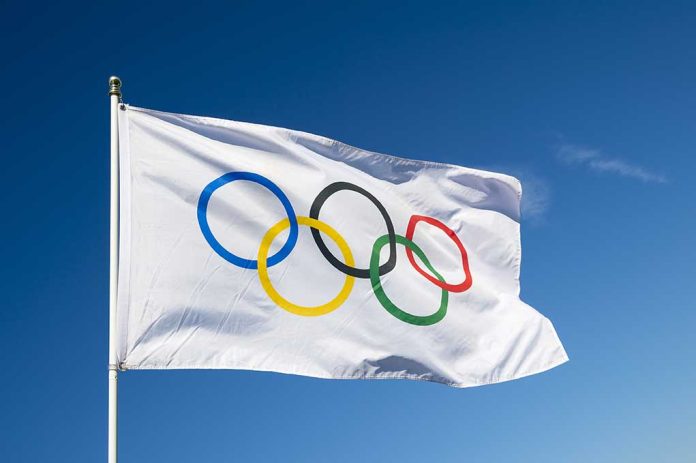
Russia appears set to be barred from the 2026 Winter Olympics, blocking Alex Ovechkin’s last chance at Olympic gold and further politicizing what should be a global celebration of athletic excellence.
Key Takeaways
- Russia will likely be excluded from the 2026 Winter Olympics ice hockey tournaments according to International Ice Hockey Federation (IIHF) President Luc Tardif
- The International Olympic Committee (IOC) has requested schedules that do not include Russian teams, effectively making the decision before any official announcement
- Alex Ovechkin, one of hockey’s greatest players, may lose his final opportunity to win an Olympic gold medal, a lifelong dream
- France will replace Russia in both men’s and women’s tournaments, with the decision being based on geopolitical considerations rather than athletic merit
- The ban continues the practice of excluding Russian athletes from international competition since the 2022 invasion of Ukraine
Olympic Dreams Shattered for Russian Athletes
The 2026 Winter Olympics in Italy was supposed to mark the return of NHL players to Olympic competition for the first time since 2014. Instead, it appears Russian athletes will be watching from home. According to reports from the IIHF Annual Congress in Stockholm, Sweden, the decision to exclude Russia from the Olympic ice hockey tournaments has effectively been made, though not yet officially announced. This ban would extend the isolation of Russian athletes in international competition that began after the 2022 invasion of Ukraine.
“The IOC is the organizer – we only deal with the competition (the hockey tournaments) itself. We have been pressuring them to make a decision, one way or another, because we’re getting closer to the Olympics and we need to know,” said Luc Tardif, IIHF President.
For Washington Capitals star Alex Ovechkin, this exclusion strikes a particularly painful blow. At 40 years old in 2026, the Olympics would likely represent his final opportunity to fulfill a lifelong dream of winning gold. Ovechkin has participated in three previous Olympics without securing a medal, despite being one of hockey’s all-time greatest goal scorers. The irony is especially bitter considering his mother Tatyana is a two-time Olympic gold medalist in basketball, and Ovechkin himself was an Olympic ambassador who carried the Olympic flame for the Sochi Games.
Politics Over Sport: The New Olympic Reality
The decision to exclude Russia from the 2026 Winter Olympics highlights the growing influence of geopolitics in what was originally conceived as a competition above political divisions. While Russian and Belarusian players have been banned from IIHF events since 2022 due to the Ukraine invasion, the Olympics have historically attempted to maintain a more inclusive stance. The IOC’s apparent direction signals a shift toward using athletic competition as an extension of international political pressure.
“Recently they asked us to send them a schedule without Russia, so that’s where we are. The official statement is pending but the IOC has told us that they are informing the Russian Olympic Committee that they are not participating in the Olympics.”
The Russian Ice Hockey Federation maintains that no final decision has been announced, stating that further consultations with the IIHF and Russian Olympic Committee will take place this summer. However, the fact that schedules have already been drafted without Russian participation suggests the outcome is predetermined. France will replace Russia in both the men’s and women’s tournaments, raising questions about competitive merit versus political considerations in Olympic qualification.
The Human Cost of Olympic Exclusion
Lost in the geopolitical maneuvering is the impact on individual athletes who have trained their entire lives for Olympic competition. Ovechkin’s personal journey exemplifies this tragedy. Having represented his country proudly throughout his career, the chance to win the one prize that has eluded him appears to be slipping away due to circumstances entirely beyond his control. At his age, 2026 would almost certainly represent his final opportunity.
“The Olympics are in my blood and everybody knows how much I love my country. My mom was a two-time Olympic champion, and when I start to play hockey, I dream that if I have a chance to play for my country, I will do it every time they ask me,” said Alex Ovechkin, Washington Capitals star.
The men’s tournament in 2026 will feature twelve teams divided into three groups: Group A with Canada, Switzerland, Czechia, and France; Group B containing Finland, Sweden, Slovakia, and host Italy; and Group C with the United States, Germany, Latvia, and Denmark. The women’s tournament will include ten teams split between Group A (Canada, United States, Finland, Czechia, Switzerland) and Group B (Germany, Sweden, Japan, Italy, France). The competition will run from February 5-22, 2026, but without one of hockey’s traditional powerhouses.
“Ever since I was good enough to play on Men’s National Team, whenever they ask me, I play. I am proud that we won on the Junior team and for the National team in the World Championships, but we have not won the most important thing yet: the Olympic Gold Medal.”



